 Petzlover
Petzlover Both British Shorthair and Havana Brown are originated from United Kingdom. Both British Shorthair and Havana Brown are having almost same weight. British Shorthair may live 5 years more than Havana Brown. Both British Shorthair and Havana Brown has same litter size. Both British Shorthair and Havana Brown requires Low Maintenance.
Both British Shorthair and Havana Brown are originated from United Kingdom. Both British Shorthair and Havana Brown are having almost same weight. British Shorthair may live 5 years more than Havana Brown. Both British Shorthair and Havana Brown has same litter size. Both British Shorthair and Havana Brown requires Low Maintenance.
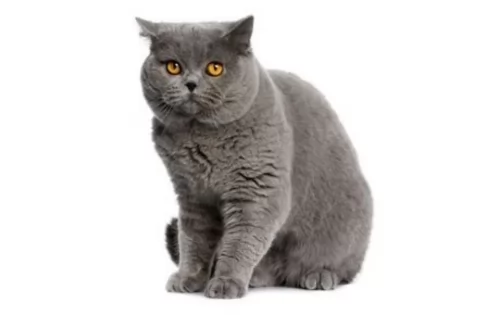 A cat breeder, Harrison Wier took a street cat of Britain and with an intensive breeding program, transformed it to the British Shorthair.
A cat breeder, Harrison Wier took a street cat of Britain and with an intensive breeding program, transformed it to the British Shorthair.
The British loved this beautiful pedigree cat. During the Second World War, the British Shorthair all but disappeared but re-emerged as a popular cat that is today accepted in cat registries around the world.
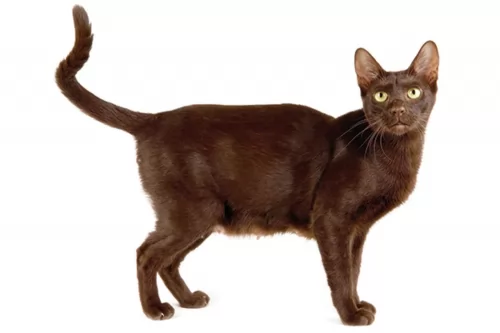 The rare Havana Brown cat seems to be a result of a planned breeding between Siamese and domestic black cats.
The rare Havana Brown cat seems to be a result of a planned breeding between Siamese and domestic black cats.
It was in the 1950s that cat fanciers in the UK became the early breeders. These breeders called themselves the Havana Group. They created the foundation of the modern-day Havana Brown cat.
These breeders managed to produce chocolate shaded kittens which became known as the Chestnut Brown Oriental. Kittens arrived in the US and were crossbred with the Chocolate and Seal Point Siamese to produce chocolate-colored kittens.
In 1964, the Havana Brown was accepted for Championship status by the Cat Fanciers Association.
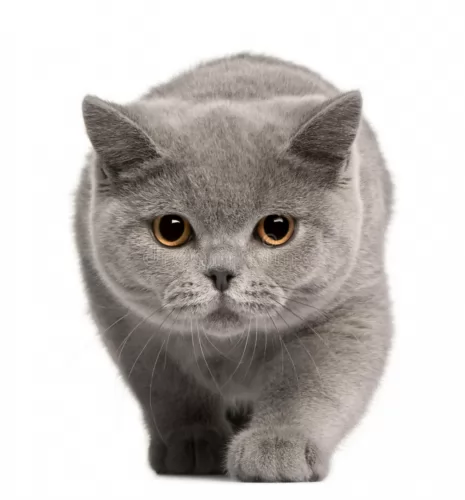 The British Shorthair is a medium to large-sized cat and he can be anything from 5 to 9kg. He has a short to medium-length dense coat that can either be a solid color, bi-color tortoiseshell or patterned.
The British Shorthair is a medium to large-sized cat and he can be anything from 5 to 9kg. He has a short to medium-length dense coat that can either be a solid color, bi-color tortoiseshell or patterned.
The coat becomes thicker and longer in the winter. This is a robust, strong cat, being heavily muscled with heavy bones. The cat also has a broad chest with thick, strong legs. The ears are fairly small and the round eyes give him a totally amicable expression on his face.
The British Shorthair is an amicable cat and makes a superb companion as it's an easy-going cat that adores his human family, being loyal towards them.
The British Shorthair is an active cat and it is able to get by on his own for a few hours without human company. If you do work particularly long hours and you go out a lot, it will be kind to perhaps get another cat for him as a friend.
He is quiet and undemanding and because he is big and heavy he doesn’t like being carried around.
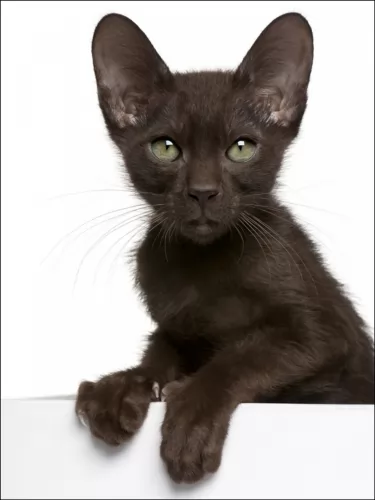 The Havana Brown is a medium-sized cat, being somewhat slender and weighing between 3 and 6kg. The body is long and muscular and the cat has a beautiful brown short to medium-length coat.
The Havana Brown is a medium-sized cat, being somewhat slender and weighing between 3 and 6kg. The body is long and muscular and the cat has a beautiful brown short to medium-length coat.
The coat color is in fact a rich reddish-brown shade. The ears are fairly large and round-shaped and the oval-shaped eyes are a beautiful green.
The Havana Brown is an intelligent, playful, curious cat who enjoys being in the company of its human family. They tend to gravitate towards one favorite family member.
They’re cats that don’t like being left alone for long periods of time. They get on well with children and he also won’t object to becoming friends with the family dog as well.
Friendly though they may be, they also enjoy spending some time on their own. Individual personalities vary but most are playful and talkative.
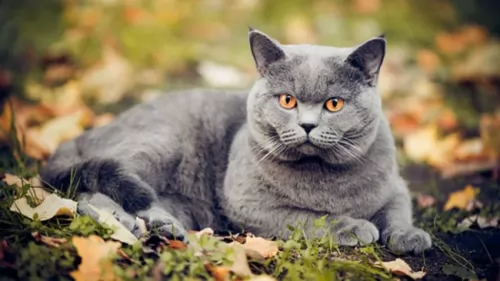 The British Shorthair is such a companionable cat, being intelligent and affectionate, even though he isn’t a lapcat as such.
The British Shorthair is such a companionable cat, being intelligent and affectionate, even though he isn’t a lapcat as such.
That doesn’t mean he doesn’t love being around his human companions. He does and is loyal to them.
They’re laid back cats and are capable of getting on well with children in the home as well as with other pets. He just loves lazing around in the sun and can spend a few hours on his own without feeling anxious or lonely.
These cats are really great companions and they make themselves at home in different lifestyles, whether you live in the countryside or in town and whether you are single, a couple or a family with children and other pets.
Easy to care for, the British Shorthair cat is guaranteed to make you an excellent companion.
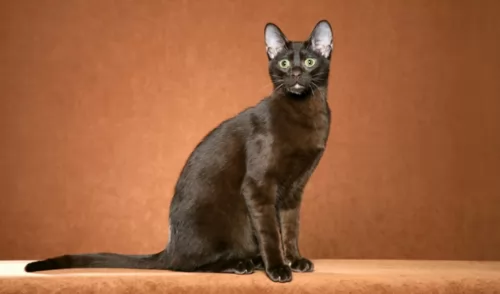 There is a good reason why the Havana Brown cat is so popular. People love the unusually rich brown coat which always has a gleam to it.
There is a good reason why the Havana Brown cat is so popular. People love the unusually rich brown coat which always has a gleam to it.
They also love that this chocolate-colored cat has a wonderful personality and can be a solid companion for humans. So long as you don’t leave him alone for a long time on his own, as that is part of his charm – wanting to be constantly involved with his human family.
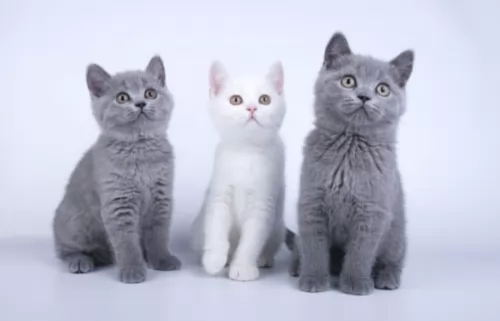 These beautiful cats are a robust, healthy type of cat breed and if you care well for him, you aren’t going to be taking him along to the vet too often. He can also live to be up to 20 years of age.
These beautiful cats are a robust, healthy type of cat breed and if you care well for him, you aren’t going to be taking him along to the vet too often. He can also live to be up to 20 years of age.
This cat has been bred with Persians in the past, so this should alert you to some of the diseases that this particular cat breed is susceptible to. It makes the cat a little bit vulnerable to polycystic kidney, an inherited condition in cats that causes cysts to form in the kidneys. They are small at first but they can grow bigger and actually result in kidney failure.
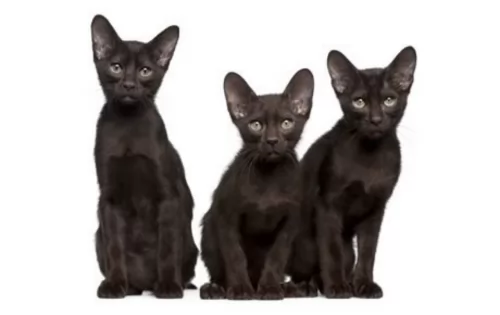 There are no known genetic diseases associated with this breed. They may have a bit of a higher occurrence of gingivitis than other cat breeds, and this thought to come from them having their Siamese ancestry.
There are no known genetic diseases associated with this breed. They may have a bit of a higher occurrence of gingivitis than other cat breeds, and this thought to come from them having their Siamese ancestry.
Beware of bladder stones with your cat which can start at any age. The stones can start off small but can grow larger, rubbing against the bladder walls and resulting in inflammation.
Bladder stones can also lead to blockage of the urethra so that your cat isn’t able to urinate. There are symptoms to indicate your pet may have bladder stones and these can be straining to urinate, painful and little urination, urinary tract infections, and blood in the urine.
This is a time when you want to get your pet to the vet just as soon as possible.
Also, be on the watch for eye infections. Conjunctivitis is one of these to look out for but there are other eye infections your cat can experience. They can come about because of an upper respiratory infection that spreads to the eyes, but they can be caused by any number of things such as bacteria, parasites, and viral infections.
You’ll notice your cat pawing at his eyes and there may even be redness, discharge, and swelling. You vet will be able to treat eye infections with ointments and eye drops.
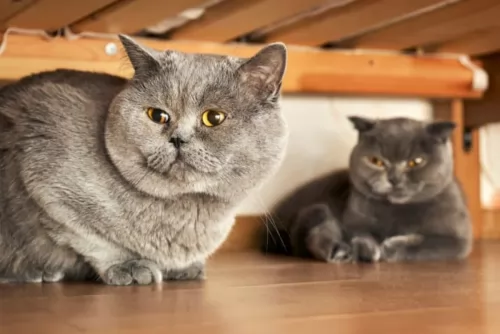 The British Shorthair is a fairly large, robust cat but that certainly doesn’t mean he must be fat. Being overweight can bring about a range of health issues and you want to follow an appropriate diet for him ad see that he gets enough exercise.
The British Shorthair is a fairly large, robust cat but that certainly doesn’t mean he must be fat. Being overweight can bring about a range of health issues and you want to follow an appropriate diet for him ad see that he gets enough exercise.
When it comes to feeding your British Shorthair, always look out for the very best, most nutritious food there is as he is a big cat.
You want to ensure your pet gets enough protein as cats are carnivores - they’re meat eaters and they require chicken, beef and fish. You can give your cat some cooked egg as they are an excellent source of protein.
Be very careful not to be tempted to give your cat chocolates, grapes, nuts, onions or garlic as foods like this are toxic for your cat and can cause him pain and discomfort.
Remember to ensure that there is always a constant supply of fresh, cool water for your cat. If you’re wondering what to feed your cat or you have any other concerns, don’t hesitate to speak to your vet.
Brush your British Shorthair when he starts to shed his winter coat and trim the nails.
Do things for your cat that you would do for your own human child. This is your beloved fur-child and you want him to be happy and healthy.
Check inside his mouth to make sure there aren’t any loose or blackened teeth that could be causing him terrible pain. Also, check inside his ears for signs of redness.
Your British Shorthair is an elegant, clean type of cat so you want to keep his litterbox nice and clean for him.
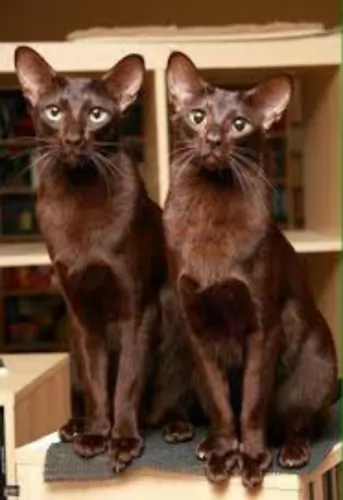 With the cat’s short coat, he experiences little shedding so very little grooming is required. A gentle brush once a week will be enough. These cats love attention and submit easily to a brush and body rub with a soft rubber brush.
With the cat’s short coat, he experiences little shedding so very little grooming is required. A gentle brush once a week will be enough. These cats love attention and submit easily to a brush and body rub with a soft rubber brush.
Check inside the mouth as periodontal disease is a problem with cats. You want to make sure that there aren’t any bad teeth as this can cause a lot of pain.
A vet can also be useful in examining your cat and pinpointing problems.
Check the inside of the ears too because they can become somewhat clogged with wax and dirt. If you don’t want to probe inside the cat’s ears with a cotton ball with warm water and apple cider vinegar, you can take your cat to the vet or to a professional cat groomer.
Keep the litter box of your cat spotlessly clean as these cats are fussy with cleanliness.